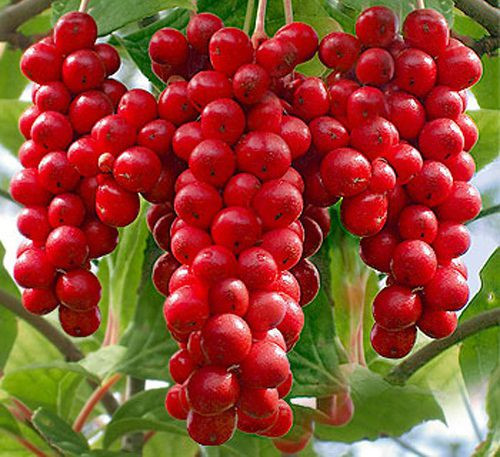Oriental medicine for heart failure treatment
Heart failure (also known as congestive heart failure) is a term used to describe a condition in which the heart is no longer able to pump enough blood to meet the body's needs.
Causes of heart failure
The most common causes of heart failure are conditions that damage the heart muscle.
The second cause of heart failure is heart overload.
- Volume overload occurs when the heart is forced to pump too much blood. This overload is caused by leaky heart valves that cause blood to "swim" back into the heart. This condition can exhaust the heart, leading to heart failure.
- Volume overload occurs when the heart is weak and needs to pump blood to overcome too much resistance. This condition occurs when the heart valves leading to the heart are narrowed, when the sac surrounding the heart (pericardium) becomes scarred and constricted (constrictive pericarditis) or filled with fluid causing cardiac tamponade, or in some cases the heart muscle is so damaged that it becomes "stiff" and cannot expand enough to receive the returning blood.
 |
| Northern five spice. |
Heart failure causes a lack of blood supply to internal organs (including the heart itself) and muscles, so typical symptoms of heart failure are shortness of breath, fatigue, cough, and edema.
Shortness of breath
This is a common early symptom of heart failure. Often, shortness of breath develops gradually, so patients can gradually limit their activities to avoid this discomfort.
Shortness of breath must sit
Patients with heart failure, especially as heart failure progresses, often find it easier to breathe when the upper body is elevated (with the head elevated or sitting up).
Paroxysmal nocturnal dyspnea
The phenomenon is similar to orthopnea but describes transient episodes of severe dyspnea that occur at night while the patient is lying down and may not resolve after sitting up.
Tired
In addition to the above respiratory symptoms, fatigue is also a typical symptom of heart failure, due to lack of blood supply to the muscles, making it difficult to exercise or even perform daily activities.
Edema and cough
When the heart is not able to pump blood well, fluid accumulates in the legs, ankles, and sometimes the abdomen, a condition called edema. Fluid can also accumulate in the lungs, causing congestive heart failure. Congestion in the lungs can cause persistent coughing or wheezing.
Treatment of heart failure
According to traditional medicine, heart failure belongs to the category of heart disease, heart attack, asthma, wasting, edema... The basic cause of heart failure is insufficient heart and blood vessels, external evils, irregular diet and sex are factors that lead to the disease. Heart failure has the following forms:
Both Qi and Blood are deficient.
Palpitations, shortness of breath, fatigue, dizziness, blurred vision, shortness of breath, reluctance to speak, pale lips, dark complexion, pale tongue, thin coating, weak pulse.
Treatment: Replenish blood and qi, nourish the heart and calm the mind.
Prescription: Modified Gui Ti Tang: 15g of Codonopsis pilosula, 20g of Astragalus membranaceus, 5g of licorice root, 12g of Poria cocos, 12g of Jujube seed, 6g of Saussurea macrocephala, 10g of Polygala root, 15g of Atractylodes macrocephala, 20g of Angelica dahurica, 15g of Longan. Boil and drink one dose per day.
Kidney failure
Shortness of breath, palpitations, difficulty sleeping, dry mouth and throat, red cheeks, tinnitus, red tongue, thin and rapid pulse.
Treatment: Nourish the heart and kidney yin, nourish the heart and calm the mind.
Prescription: Reduced Thien Vuong Bo Tam Dan: 12g of raw rehmannia root, 12g of scrophularia root, 15g of red salvia root, 12g of asparagus root, 12g of ophiopogon root, 12g of angelica root, 12g of Chinese clematis root, 12g of jujube seed, 12g of Solomon's seal root, 12g of Solomon's seal root, 12g of Polygala root, 12g of Platycodon grandiflorum, 5g of Schisandra chinensis. Boil and drink one dose per day.
Heart blood stasis
- Fatigue, weakness, anxiety, arrhythmia, asthma, difficulty breathing when lying down, dark face, purple lips, blue-purple fingertips. Purple tongue with blood stasis rash. Thin or thick pulse.
Treatment: Activate blood circulation and remove blood stasis.
Prescription: Peach seed and safflower with modifications: 15g of angelica, 15g of red salvia, 10g of curcuma, 6g of safflower, 15g of peach seed, 15g of dragon bone, 15g of peony root, 12g of dianthus, 10g of cinnamon, 10g of ligusticum wallichii, 5g of licorice.
- Rapid heartbeat, edema all over the body, thin body, poor appetite, loose stools, white tongue coating, weak and weak pulse.
Treatment: Warm the spleen and nourish the kidneys, clear yang and promote diuresis.
Prescription: Modified Chan Vu thang: Processed aconite root 6g, white mulberry bark 12g, white atractylodes 15g, poria 20g, cinnamon twig 10g, fresh ginger 5 slices, Alisma 15g, white peony 15g, and Chinese clematis seed 15g. Boil and drink one dose per day. Add 750ml of water and boil down to 250ml, divide into 3 doses to drink during the day while the medicine is still hot.
According to Health and Life






